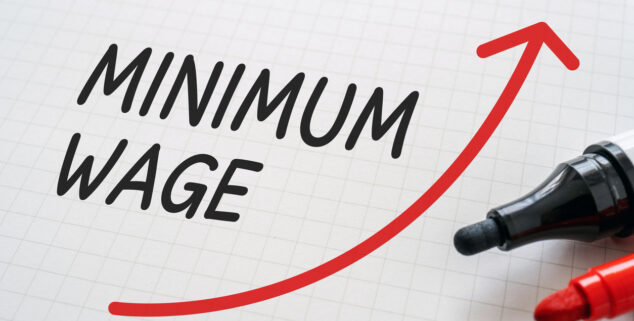Opinion
The high cost of California’s minimum wage hike
 White paper written "MINIMUM WAGE" with markers.
White paper written "MINIMUM WAGE" with markers.OPINION – On April 1, California enacted a piece of legislation that mandates a minimum wage of $20 per hour for fast-food workers. But even the legislation’s primary supporter Governor Gavin Newsom seems to know this policy is bad for business.
Newsom has lauded this move as “extraordinarily beneficial” for the state’s lower-income workers. However, Newsom’s enthusiastic push for a $20 minimum wage for fast food workers in California strikes a chord of blatant hypocrisy when compared to the wages offered at his own PlumpJack Cafe in Olympic Valley—one of the most expensive places to live in the U.S.
Newsom’s business is still offering jobs at $16 per hour, according to a ZipRecruiter posting. If the Governor truly believes that the $20 minimum wage will benefit workers, why doesn’t he offer it at his own restaurant?
The fresh wage requirements have sparked a wave of concern across the Golden State’s business landscape – and for good reason. According to a study conducted by Harvard Business School, every dollar increase in the minimum wage correlates with a 14% uptick in the likelihood of a restaurant’s closure.
The implications of this legislative change are far-reaching. California, already leading the nation with the highest unemployment rate, will inevitably see these figures worsen. The increase in the minimum wage is already beginning to manifest in higher unemployment numbers and price inflation. This exacerbates the hurdles local businesses face, adding to a climate already rife with economic challenges.
The fallout from this policy in just one week since the law became effective is already tangible. Fast food restaurants including several Pizza Hut franchisees have announced layoffs, affecting over 1,200 delivery drivers in anticipation of the wage increase. Additionally, several establishments, including Foster’s Freeze in Lemoore and five Mod Pizza locations in California, have shuttered their doors. Other businesses are looking to move their franchises out of the state entirely.
And it’s not just businesses that suffer; consumers, too, are feeling the pinch. As businesses grapple with the increased labor costs, many have resorted to raising prices, passing the financial burden onto their customers. In a period marked by high inflation, such developments are particularly unwelcome. From Chipotle’s 10 percent price hike to Starbucks’ 7 percent increase, the trend is clear and disconcerting. Some Californians have expressed they will likely have to cut down on trips to eat at fast-food restaurants.
The wage hike could not come at a worse time for California’s restaurant industry. Thanks to a maze of regulations like the Private Attorneys General Act (PAGA) and Assembly Bill 5 (AB 5), California was recently ranked as the number one most difficult state to open a restaurant. One award-winning chef called California’s restaurant environment “suicidal for business.”
Governor Newsom’s “do as I say, not as I do” approach is a clear reminder that actions speak louder than words. California’s business environment, already among the most challenging in the nation, will become even more inhospitable to the small and medium-sized businesses that form the backbone of the state’s vibrant food culture.
Tom Manzo is the president and founder of the California Business and Industrial Alliance
Want to see more stories like this? Sign up for The Roundup, the free daily newsletter about California politics from the editors of Capitol Weekly. Stay up to date on the news you need to know.
Sign up below, then look for a confirmation email in your inbox.

Leave a Reply